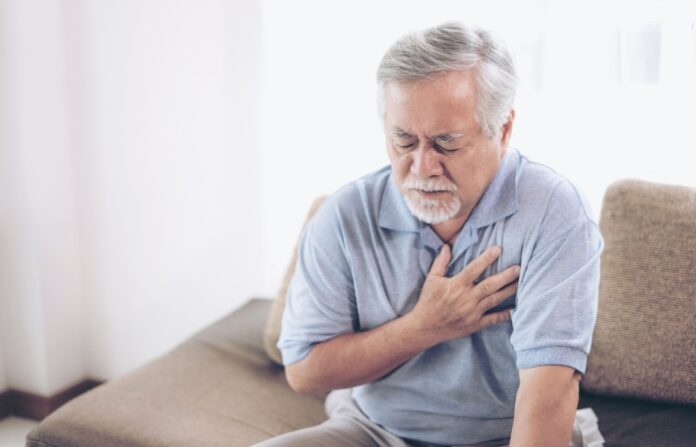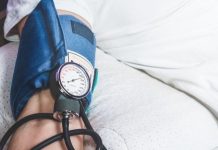The human heart is a remarkable organ that pumps blood throughout the body, supplying it with oxygen and nutrients. However, sometimes this vital organ can become compromised, leading to a potentially life-threatening event known as a heart attack. While many people are aware of the classic symptoms of a heart attack, such as chest pain or discomfort, there are several other less well-known symptoms that can also indicate a heart attack is underway.
In this article, we will explore the top 10 heart attack symptoms that you might ignore, and why it’s crucial to pay attention to any warning signs that your body may be giving you.
1. Sense of Being “out of yourself”
Commonly experienced by older adults as “just didn’t seem like themselves” kind of feeling, symptoms can range from fatigue, and palpitations to other more vague symptoms like memory loss and decreased alertness. Anything out of ordinary should alarm their loved ones.
2. Rapid heart rate
During a heart attack, the heart muscle may not receive enough oxygen and nutrients due to a blocked artery, causing it to work harder to pump blood. This increased workload can cause the heart rate to speed up, and you may notice that your heart is beating faster than usual.
3. Flu-like symptoms

Flu-like symptoms like clammy, sweaty skin, along with feeling light-headed, fatigued, and weak might not alarm you but if it’s not aggravated by high body temperature or a feeling of heaviness in your chest area is present, you better let your doctor check it because it might be a heart attack waiting for its right time.
4. Insomnia
Though experts are not yet equipped with an explanation, those who got heart attacks have reported experiencing sleeplessness, anxiety, or a feeling of an “impending doom” months or days before the attack. Of course, those who have been insomniacs for quite a long time already are out of this issue.
5. Swelling and pain in the leg area
Because the heart’s pumping action has been disrupted, chances are the circulation of blood and supply of oxygen to different parts of the body will be affected tremendously. As a result, edema or swelling in the legs due to the accumulation of blood will be evident. Leg pains are also present because of insufficient oxygen supply to this area.
6. Breathlessness
Due to insufficient oxygen supply in the blood, light-headedness and dizziness can be experienced as part of the body’s response mechanism.
7. Fatigue

According to studies, a sense of “crushing” fatigue is usually experienced by heart attack patients months before the event. More than 70 percent of women in an NIH study reported extreme fatigue. It happened in the weeks or months prior to their heart attack.
8. Sexual Dysfunction
Sexual dysfunction can be a common complication of a heart attack, particularly in men. The physical and emotional stress of a heart attack can affect sexual function in several ways. For example, a heart attack can damage the blood vessels and nerves that are necessary for achieving and maintaining an erection. Additionally, some medications used to treat heart disease, such as beta-blockers, can also contribute to sexual dysfunction.
9. Jaw, Ear, Neck, or Shoulder Pain
This type of pain is the most neglected because people do expect that for the pain to be a potential heart attack symptom, it should come only from the chest area. However, recent reports have proven that intermittent pain radiating from the jaw to the ears is one of the most reliable indicators of a deadly heart attack.
10. Abdominal discomfort
Symptoms can range from mild indigestion to severe nausea, cramping, and vomiting. You can’t always attribute these symptoms to an impending heart attack but there’s a reason to suspect if abdominal discomfort is being experienced by someone who hasn’t eaten anything bad or doesn’t have a stomach illness.
The Importance of Recognizing Heart Attack Symptoms
Heart attacks can be a silent killer, as many people may not even realize they are having one until it’s too late.
Recognizing heart attack symptoms early is critical because it can save a person’s life. When a heart attack occurs, the flow of blood to the heart muscle is blocked, which can lead to permanent damage or even death if not treated immediately.
The earlier a heart attack is recognized, the better the chances of survival and the less damage to the heart muscle.
Many people mistakenly believe that heart attacks only happen to older individuals or those with a history of heart disease. However, heart attacks can happen to anyone, regardless of age or gender. In fact, more and more young people are experiencing heart attacks due to unhealthy lifestyles, stress, and other risk factors.
Recognizing the symptoms of a heart attack can also help prevent future heart attacks. Once a person has had a heart attack, they are at a higher risk of experiencing another one.
By learning to recognize the warning signs of a heart attack, individuals can take steps to prevent future heart attacks by making lifestyle changes, such as exercising regularly, eating a healthy diet, quitting smoking, and managing stress.
Ignoring or dismissing heart attack symptoms can lead to serious consequences. For example, if someone is experiencing chest pain or discomfort but ignores it or assumes it’s just indigestion, they may delay seeking medical attention, which can lead to permanent damage to the heart muscle or even death.
Sources:
- American Heart Association
- Harvard Health Publishing – Unusual Heart Attack Symptoms
- Centers for Disease Control and Prevention – Heart Attack Symptoms
- AHA Journals


















